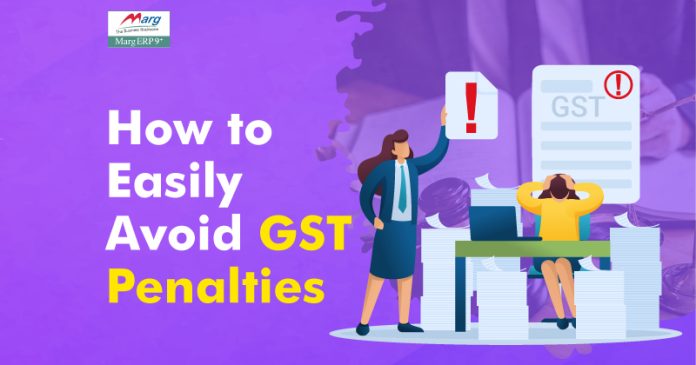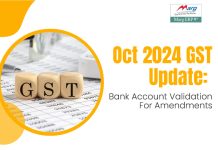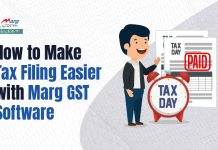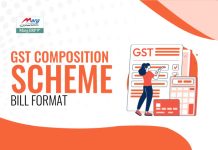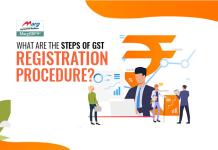With every financial decision comes with it, its legal obligations. A taxpayer’s most important duty is to pay their taxes on time, failing to do so, may attract various legal obligations or monetary penalties, like late fees and interest. Understanding what are the offences and penalties is a crucial thing for staying compliant and avoiding these legalities. In this article, we will learn more about, the legal penalties, imposed by tax authorities if you fail to meet the deadlines, or are liable for the penalties under any other circumstances.
What is GST?
One of India’s greatest tax reforms implemented on the 1st of July, 2017, the Goods and Service Tax, is a comprehensive tax levied on the supply of goods and services. The GST model in India entails the enactment of two components of taxation, Central Goods and service tax and State goods & service tax. It worked to replace all the indirect taxes such as central excise duty, single VAT, central state tax, and purchase tax. Here’s a chronological order of the major landmarks in GST Bill implementation.
The 2000 GST came into force, by then prime minister Atal Bihari Vajpayee, headed by the finance ministry advisor, Vijay L. Kelkar.
2006 The Union Ministry of Finance proposed a GST introduction from the 1st of April 2010.
The 2011 Constitution Amendment Bill was introduced and four supplementary GST bills were passed.
2017 On July 1st, 2017, GST came into force, under Prime Minister, Narendra Modi.
The arrival of GST cancelled out the following and other taxes:-
- Service Tax.
- Duties of Excise.
- Central Excise duties.
- Cess and Surcharge.
- Additional Duties of Excise.
- Additional Duties of Customs.
- Entry Tax.
- Purchase Tax.
- Luxury Tax.
- State VAT.
- Central Sales Tax.
- Entertainment Tax.
- State Cess and Surcharge.
- Taxes on Gambling and Lottery.
What are the Advantages of GST Tax Regime?
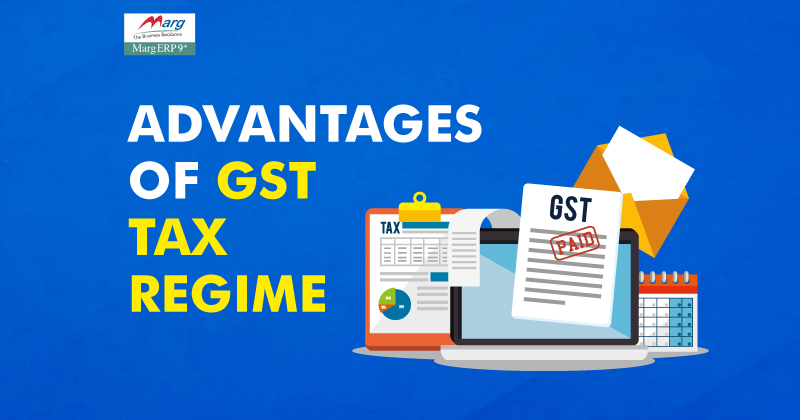
The GST implementation has brought about numerous advantages for the common man of India.
- GST has been implemented to bring about a uniform tax structure in India. Working under the motto of One Nation, One Tax.
- With all the processes being technology-driven, in GST, from return filing to registration, to refund everything can be done online within a few clicks. This eliminates the trouble of going from places to places to file taxes like VAT, service tax and more.
- Before the coming of GST, VAT was supposed to be paid by businesses whose average annual turnover was more than 5 lakhs. After the implementation of GST, the following is the threshold for businesses.
| TAX | THRESHOLD |
| Excise | 1.5 crores. |
| Value Added Tax. | 5 lakhs |
| Service Tax | 10 lakhs |
| Goods and Service Tax. | 20 lakhs. |
This excluded several small trading businesses from the mandate of taxes.
- Suppose an official offering service for, let’s say, Rs 50,000. He charged a service tax of 15%, which is calculated to be Rs 7,500. Then, he would buy office supplies for Rs. 20,000 paying 5% as Value Added Tax, which would be Rs 1,000. Now, he has to pay 7500 service tax and Rs. 1000 VAT, which makes his total outflow Rs. 8500. But under GST, the taxes paid for office supplies will be subtracted from the net tax payable, which will bring the total to only RS. 1000.
Types of Goods and Service Tax, under the GST Regime
The goods and service tax has been classified into 3 broad categories. They are CGST, SGST, and IGST.
- CGST or Central Goods and Service Tax is the tax that is levied by the central government on the intra-state supply of goods and services within one single state in the country.
- The state government levies GST or State Goods and Services Tax on the intra-state supply of goods and services within one single state in the country.
- IGST or the Integrated goods and service tax is levied by the central government on the interstate supply of goods and services between two different states in India.
The CGST and the SGST are collected by the governing body of the state where the supply takes place and the IGST is distributed to the destination state after the central government collects it.
What Offences and Penalties Come Under GST
GST penalty under section 73 of GST
“Determination of tax not paid or short paid or erroneously refunded or input tax credit wrongly availed or utilised for any reason other than fraud or any wilful-misstatement or suppression of facts”
- In these cases, the tax that was unpaid, or not paid at all was not due to fraudulent reasons or willful intentions,
- Therefore the penalty that is attracted in such cases is 10% of the tax involved, to a minimum amount of 10,000 INR.
GST penalty under section 74 of GST
“Determination of tax not paid or short paid or erroneously refunded or input tax credit wrongly availed or utilised by reason of fraud or any wilful misstatement or suppression of facts.”
- When the delayed or non-payment of taxes is caused due to fraudulent intentions.
- The penalties attracted are, equal to the tax involved, subjected to a minimum amount of 10,000 INR.
A few other offences related to GST are,
- Offences related to Invoicing and Documentation.
If a taxable person supplies any goods or services, with a fake or fraudulent invoice or no invoice at all, issues an invoice or a bill without providing services or goods, or issues invoices using the unique identification number of another registered taxable person, they are offenders under the GST regime and are liable for penalty. - Offences related to Fraudulent Intent.
A person will attract a penalty if they are unsuccessful in supplying the required information, submit false information, submit false financial records or documents, file fake returns to evade tax or provide false information or no information at all during proceedings.
- Offences related to tax Evasion.
If a Taxable person collects the goods and service tax but does not submit it to the government within 3 months, receives a refund of CGST/SGSt under fraudulent conditions, utilises input tax credit without actual receipt of the goods or services, or suppresses their sales to avoid paying the taxes, it will cause them an offence under the GST.
- Offences related to Obstruction.
Obstructing or preventing any officer in the discharge of their duties, creating problems for the officer during the auditing, or tampering with evidence counts under legal offences and is eligible to attract a sum penalty.
- Offences related to the Conveyance of Goods.
A person with a transportation business should mandatorily carry out the conveyance of his goods, along with proper documentation, like E-Way bills, and e-invoices. Failure to do so will attract a penalty under the regime of Goods and Service Tax. Also, carrying goods that are eligible for confiscation can attract a penalty.
10 Tips to Avoid GST Penalties
- As soon as your business threshold crosses the turnover limit, you need to obtain the GST registration for your business through the GST portal.
- You should avoid supplying goods and services to your customers without a proper tax invoice.
- If you obtain GST refunds by giving fraudulent information, you can attract a penalty.
- Taking an ITC (Input Tax Credit) without an actual supply of goods and services can attract a penalty. Therefore you should avoid utilising ICT in any unethical manner.
- Maintain your accounting records religiously and accurately to avoid attracting a penalty.
- Avoid issuing incorrect or fraudulent invoices for the sale of any goods or services, and do not issue an invoice without actually supplying goods and services.
- Do not misuse another bona fide taxable person’s unique registration ID to issue an invoice.
- Job holders should accurately deduct TDS(Tax Deducted at Source) wherever required, failure to do so or deducting a lower amount can attract a penalty under the GST regime.
- Individuals with a transportation business should avoid the conveyance of their goods without accurate documents, appropriate GST registration
- Supplying goods that can be subjected to confiscation can also attract a penalty.
How to Calculate GST Penalty?
Follow the following steps in order to calculate your tax liabilities and penalties, from your preferred GST penalty calculator software simply in a few taps.
- Select the name of the state where you reside, from the drop-down menu.
- Select your AATO or your Annual Aggregate Turnover of your business as per the previous financial year.
- Select the period for which you are supposed to calculate the interest or penalty.
- Then, select the date you are filing the return.
- Enter your tax liabilities and input tax credits as per your accounts.
- The GST penalty calculator software will calculate the net tax liability, on which the interest and late fee is calculated.
- After you receive the amount that is to be paid, click on submit to get your tax liability.
How to Pay the GST Penalty?
To pay your GST penalty online, you need to follow these steps
- Access to the official GST portal on .gst.gov.in/URL.
- Login to the portal with valid credentials.
- To access the generated challan, click on services, the payments, and then the challan history.
- Select the CPIN link for which you want to make the payment.
- Select your preferred mode of payment.
- Then select the check box for accepting the terms and conditions.
- And then, make the payment.
After the success of your payment, you will be redirected to the official GST portal, where you can access and print your receipt.
Conclusion
Navigating the complexities of GST compliance, from registration requirements and invoice management to correct filing of returns and handling of ITC, highlights the critical importance of adherence to statutory mandates to avoid financial penalties and legal complications. Through proactive engagement with the registration process, diligent invoice issuance, accurate return filing, effective ITC management, and compliance with E-way bill regulations, businesses can safeguard their financial and operational stability. Moreover, understanding the implications of timely payment of liabilities and recognizing the benefits of voluntary disclosures further underscores the importance of strategic financial planning and compliance in the GST framework.
The strategies and insights discussed provide a comprehensive roadmap for businesses seeking to mitigate the risks associated with GST non-compliance. By leveraging technology, staying informed about regulatory updates, and possibly consulting with tax professionals, businesses can enhance their compliance efforts, optimise tax benefits, and maintain robust financial health. It is through diligent adherence to GST regulations and embracing a culture of proactive compliance that businesses can successfully navigate the challenges of the GST system, thereby avoiding unnecessary penalties and fostering sustainable growth.
Frequently Asked Question
How can I avoid GST late filing penalties?
To steer clear of any late fee or penalty associated with GST, taxpayers should ensure timely tax payments, including interest, penalties, and fees, through online banking, credit card, NEFT, or RTGS. These payments should be credited to the electronic cash ledger.
What are some steps that businesses can take to prevent GST late filing penalties?
Businesses can avert GST penalty by meticulously maintaining their records, ensuring the timely payment of GST, consistently filing GST returns, and seeking guidance from tax professionals.
Is it possible to Get a Penalty Waived?
Yes, the government has the authority to fully waive penalties under sections 122, 123, or 125, as well as late fees under section 47. This waiver applies to specific taxpayer classes and under certain conditions, as recommended by the Council and announced via notification.
How do I pay a GST late filing penalty fee?
When submitting GST returns, the GST portal will automatically calculate any applicable late fee. These fees for the current month or quarter must be paid upon filing the next month’s or quarter’s returns. Late fees must be settled in cash and are required for both CGST and SGST with payments made into separate electronic cash ledgers.
Are there any jail punishments for GST-related penalties?
Yes, high-value frauds related to GST are subjected to a jail term. The jail terms for various high-value frauds are given as follows,
A jail term not exceeding 1 year is levied upon those who commit fraud of more than Rs, 100 lac. To less than Rs. 200 lac.
A jail term not exceeding 3 years is levied upon those who commit fraud of more than Rs, 200 lac. To less than Rs. 500ac.
A jail term not exceeding 5 years is levied upon those who commit fraud of Rs, 500 lac.or more.
More Relevant Posts
Top 9 Tried and Tested Tactics for Stress-Free GST Return Filing
How to Generate E-Way Bills on the GST Portal
How You Can Generate an E-Invoice in 5 Simple Steps
𝗔𝘂𝘁𝗼 𝗪𝗵𝗮𝘁𝘀𝗔𝗽𝗽 𝗣𝗮𝘆𝗺𝗲𝗻𝘁 𝗥𝗲𝗺𝗶𝗻𝗱𝗲𝗿 For F𝗮𝘀𝘁𝗲𝗿 Payment Collection

